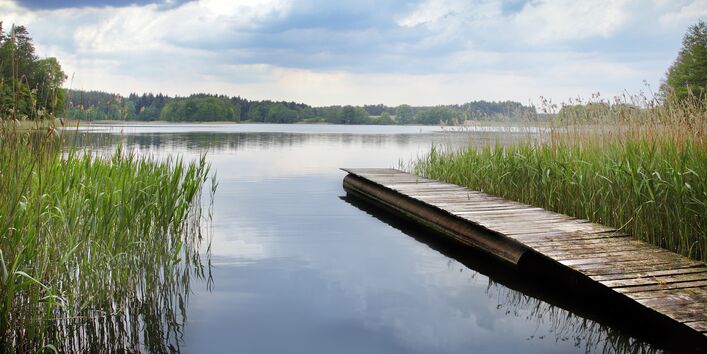Clean bathing waters, but the fun has its limits
In the 2019 bathing season, the EU Commission rated 93% of all German bathing water sites 'excellent'. Overall, 98 percent of bathing waters in lakes, rivers and on the coast were in compliance with the quality standards of the European Bathing Water Directive. This data is confirmed by the Quality of Bathing Water data published by the EU Commission on 8 June for the 2019 bathing season. The report confirms the continued good quality of bathing waters in Germany, as in previous years.
The Commission rated only eight bathing waters in Germany 'poor' for the 2019 season according to the criteria of the EU Bathing Water Directive. 105 sites were closed either temporarily or entirely, 53 of which because of problems with cyanobacteria (blue-green algae). The reasons for longer-term closures were usually remediation measures or a lack of operator; 27 sites were closed temporarily due to poor hygienic quality of water, which in most cases was the result of storms and torrential rains causing effluent to be washed into bathing waters.
Data from recent years show that the hygienic water quality of the vast majority of bathing waters remains stable. Only a few bathing waters have been rated differently in past seasons - and if so, then mostly in favour of 'excellent' quality. Overall, the quality of bathing water in Germany has remained at a consistently high level since 2001.
Tests were carried out at 2,291 German bathing sites in the 2019 bathing season, with 13,448 water samples taken and evaluated. 367 of the bathing sites are along the coasts of the North and Baltic Seas, 1,924 are inland.
The latest data on bathing water quality is available online on the web pages of the individual federal states. For an overview go to www.uba.de/wasserqualitaet-in-badegewaessern.
The 2020 bathing season will be different: Information about coronaviruses and bathing waters
Bathing in designated bathing waters is relatively safe despite the corona pandemic, provided that certain hygiene and distancing measures are taken. The risk of infection with the SARS coronavirus-2 increases when people are crowded together in one place at the same time. This is why the (social) distancing rules must also be observed when spending time at and in bathing water. As it is impractical to wear a mask when bathing, maintaining safe distances in the water and onshore is crucial in preventing infection. For the beach area and, if necessary, the use of special infrastructure at the bathing water, the rules of distance and hygiene apply as in comparable other public spaces.
Transmission of the SARS coronavirus-2 when bathing is considered extremely unlikely. According to the WHO, there is no evidence at present that the virus is transmitted via water. As a matter of principle, however, people who suffer from an acute respiratory tract infection or diarrhoea should not go swimming and expose other bathers to risk. This is a universally applicable rule, regardless of which potential pathogens are involved.
